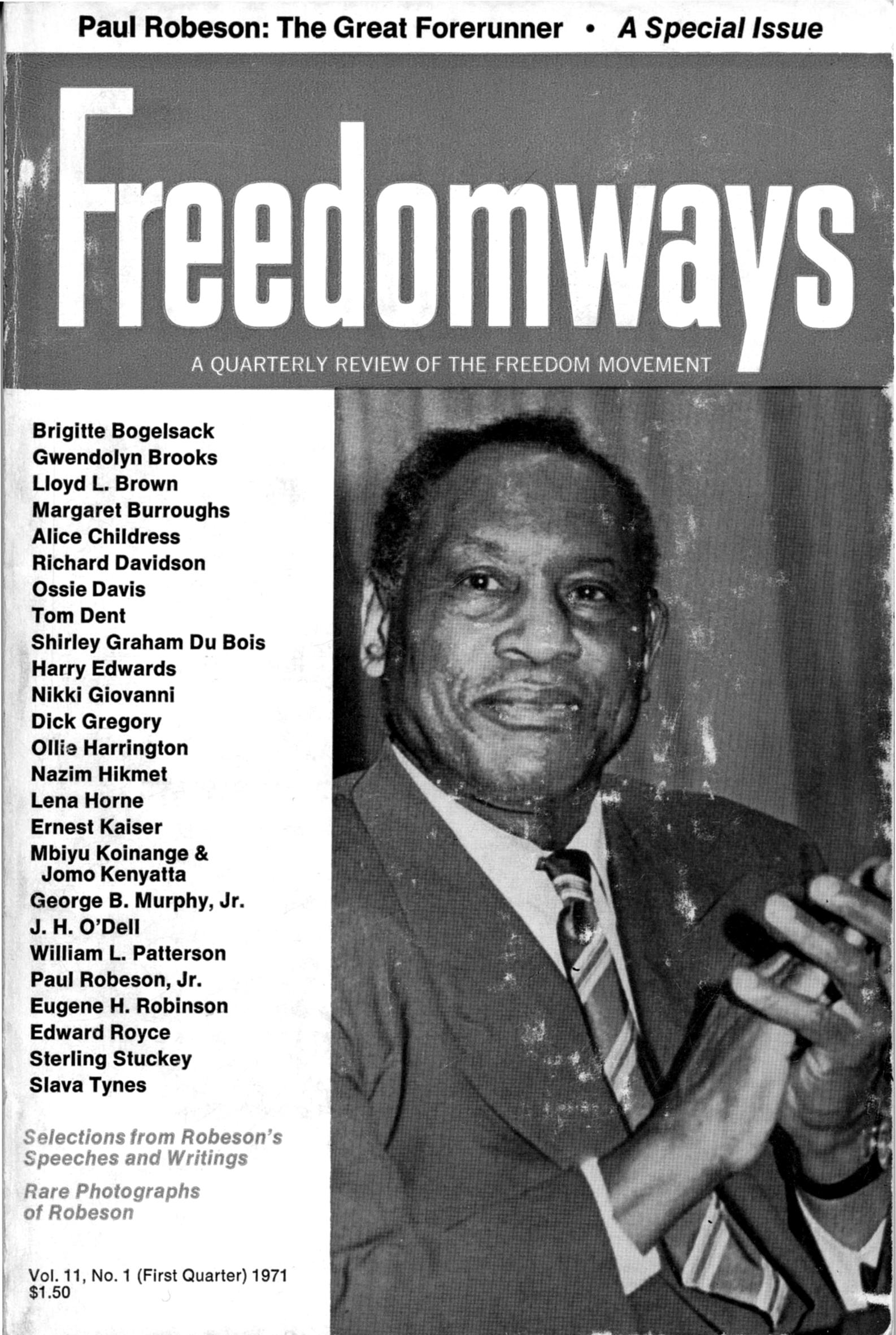Freedomways (Prior revision dated Saturday 16 September 2023 03:20:06 -- @180)
Freedomways, an influential American quarterly periodical, emerged in the volatile socio-political climate of 1961 as a beacon of African-American intellectualism and activist thought. It continued its relentless stride in championing civil rights dialogue and discourse until its final issue in 1985.
Created amidst the tumultuous Civil Rights era, Freedomways sought to illuminate the struggle of African Americans against racial injustice. A project shaped by the dedicated collaboration of W.E.B. Du Bois, famed black scholar, and Esther Cooper Jackson and Shirley Graham Du Bois, its founding editors, the journal emerged as a prominent platform for deepening the awareness and understanding of racial equality issues.
The magazine, unique in its focus, united scholars, activists, and artists from the African American community and beyond, thereby amplifying minority voices and perspectives. It made an indelible mark in encouraging and fostering literature and art that represented the African American experience, thus shedding light on an oft-overlooked aspect of American society.
While invariably intertwined with the cause of racial equality, Freedomways broadened its scope beyond the American borders, underscoring the interconnection of the African American struggle with Pan-Africanism, the international labor movement, and the global anti-colonial struggle. This comprehensive approach allowed it to narrate the shared experiences of oppression and resistance across countries and cultures.
Famed literary personalities like Alice Walker and Langston Hughes found a congenial platform in Freedomways to express their creative prowess, their works unveiling the African American context and contributing to a more nuanced understanding of collective racial justice. The magazine also featured an impressive line-up of political figures who conveyed their vision for racial equality within its pages.
Freedomways' remarkable commitment to voicing the perspectives of racial minorities, stimulating intellectual discourse, and advocating social justice maintained its relevance across the globe. It persistently stood as a testament to the inextricable link between knowledge, creativity, and the enduring struggle for racial equality. The magazine may have ceased publication, but its impact is an inalienable aspect of journalistic and intellectual history.{{Categories}}